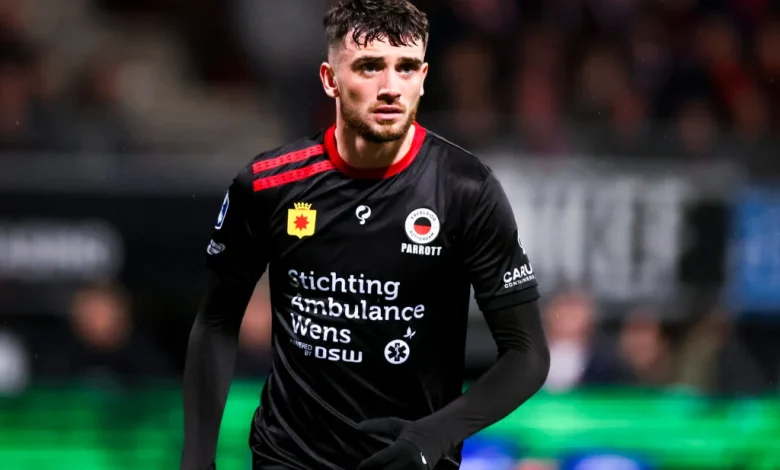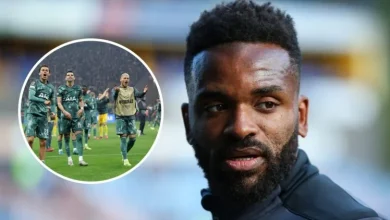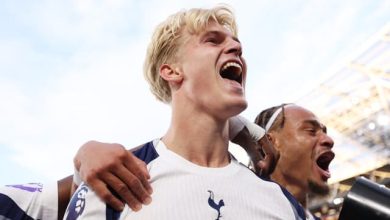Tottenham immediately unlock £33.5m transfer prize after Troy Parrott terms agreed

Daniel Levy could theoretically pump another £33.5m into Tottenham’s transfer budget thanks to the sale of academy graduate Troy Parrott.
Parrott, 22, came through the ranks at Hotspur Way after signing from Dublin side Belvedere in 2017 and has gone on to make four senior appearances for the club.
However, despite showing major promise in his early career, the centre-forward has played the vast majority of his football out on loan.
Troy Parrott of SBV Excelsior looks on during the Dutch Eredivisie match between Excelsior Rotterdam and FC Twente at Van Donge & De Roo Stadio…
Photo by NESimages/Herman Dingler/DeFodi Images via Getty Images
The Republic of Ireland international, who has one year left on his Spurs contract, spent last season with Dutch side Excelsior.
Clearly, Parrot impressed while scoring 17 goals for the Rotterdam club as he has now agreed terms and is set to undergo a medical for fellow Eredivisie side AZ Alkmaar ahead of a £6.7m move.
That fee has been hailed as something of a masterstroke from Levy, Spurs’ chief negotiator, co-owner and chairman.
And Parrot’s home-grown status means that Spurs could benefit from more than just the upfront fee.
Home-grown Troy Parrott to free up PSR headroom
Few clubs in the Premier League are in a better off under Profit and Sustainability Rules (formerly FFP) than Spurs.
That is thanks to Levy’s emphasis on sustainable growth, which has frustrated fans at times but has now put the club in a strong position ahead of an expected tightening of the PSR model.
And because of the way profit on player sales is calculated, Parrott‘s sale will give them even greater headroom to manoeuvre in the transfer market.
Per football finance expert Kieran Maguire speaking exclusively with TBR about Spurs’ North London rivals Arsenal and the potential sale of several academy players, these sales count as ‘pure profit’.
Why? Because, in contrast to outsourced players, academy graduates have no transfer fee associated with them.
For PSR, any profit from player sales is offset against a player’s book value, which is determined by their initial fee and how long remains on their contract.
For example, a player signed for £50m on a five-year contract has a book value of £50m in year one, £40m in year two and so on.
If the club then sells the player in year two of his contract for £50m, the club will record a £10m profit as far as their PSR calculation.
But for academy graduates like Parrott, the lack of an initial fee means that any sale proceeds are pure profit.
And given that signing fees are split over a player’s contract length (up to five years) whereas incoming fees are received up front, Parrot’s sale would generate £33.5m PSR headroom immediately.





